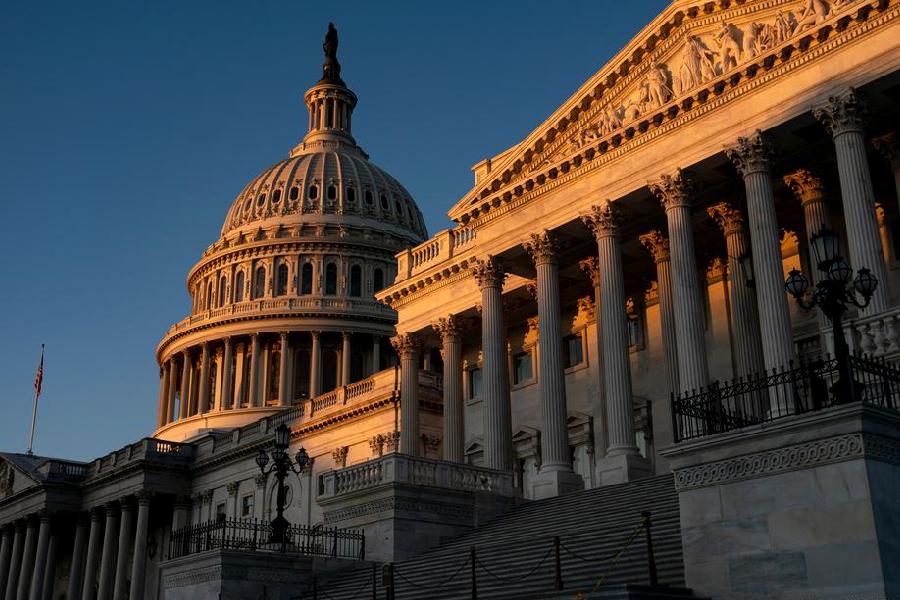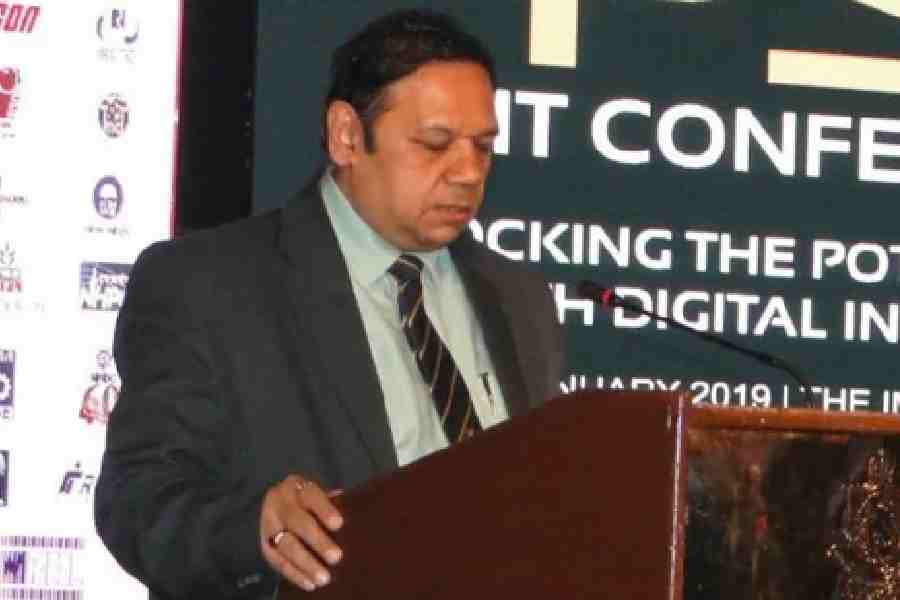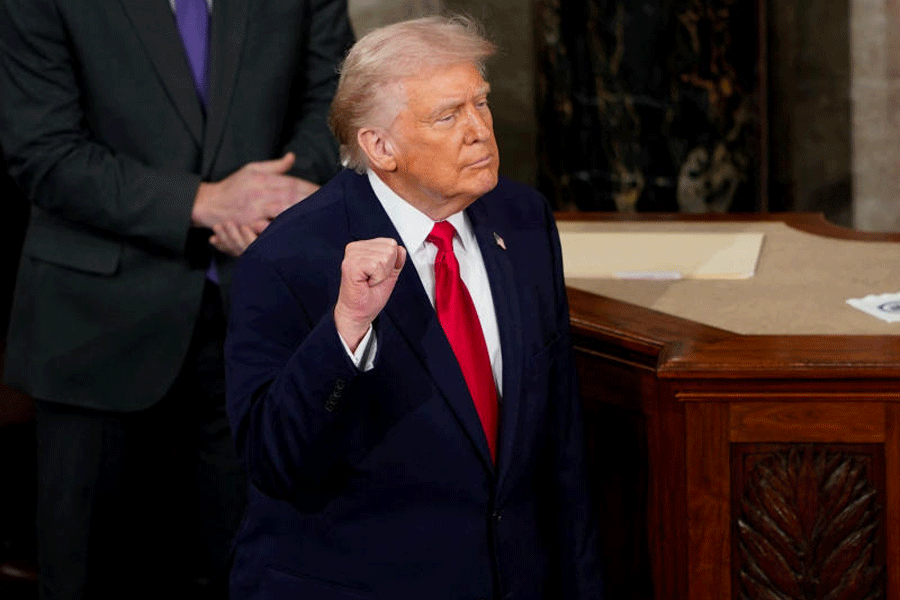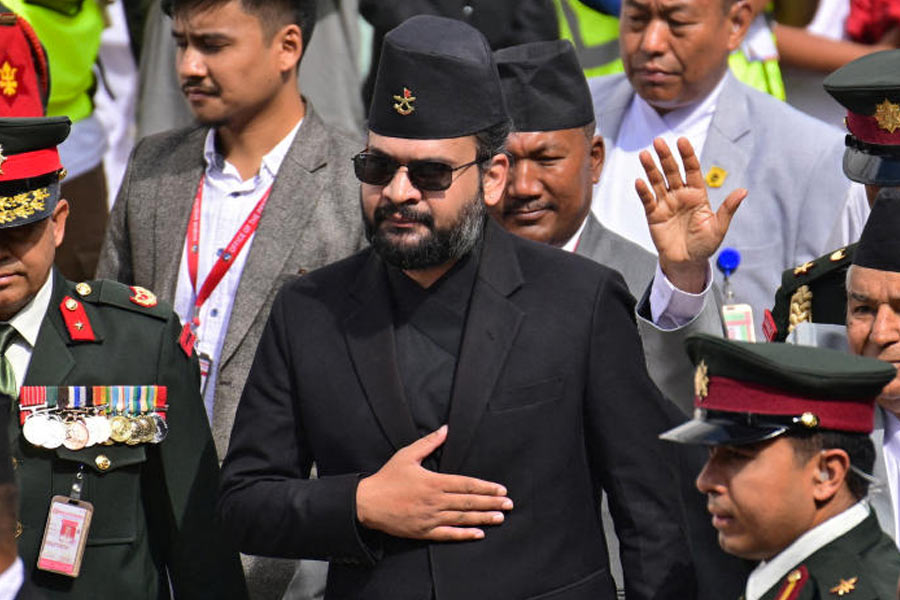The Sangh parivar-affiliate Swadeshi Jagran Manch on Friday slammed what it called America’s "coercive tactics" to gain access to sensitive sectors of Indian markets even as a think tank said US President Donald Trump’s moves are more than just a tariff measure and a pressure tactic.
The Manch asked the government to stay firm to protect the national interest.
SJM national co-convenor Ashwani Mahajan said in a statement that India's sovereign right to procure defence equipment to strengthen self-reliance in defence production and to secure crude oil at the most competitive prices, essential to keeping domestic inflation under check, cannot be subjected to external pressure.
The Telegraph Online had reported on Thursday that Indian state refiners have stopped buying Russian oil in the past week as discounts narrowed this month and Trump warned against purchasing oil from Moscow.
The SJM’s Mahajan said that if Washington believes that such "coercive tactics" can sway India's decisions, it must recognise that today's India is not the India of a decade ago.
"The SJM urges the government of India to maintain its firm stance and to use this moment to strengthen strategic autonomy, protect national interest, and advance a truly multi-polar and equitable global trade order, and make a decisive move towards 'Aatmanirbhar Bharat'," Mahajan said.
"We are emerging as a global power, demonstrated decisively during Operation Sindoor, and committed to building robust indigenous capabilities in arms production. The United States, too, needs to move beyond the inertia of a unipolar world view and embrace the reality of a multi-polar, cooperative order," he said.
"The SJM believes this is a moment to accelerate diversification of trade beyond traditional partners, deepening ties with Latin America, Africa, the expanded BRICS bloc, and the Global South. While the US remains India's largest trading partner, trade must always serve mutual benefit – not be used as an instrument of pressure," he added.
Mahajan said it is "unfortunate" that the US had chosen to adopt punitive measures against India, a strategic partner, at a time when the world must collectively respond to the far greater challenge posed by China's weaponisation of trade and global value chains like the restrictions on rare earth exports that is causing huge harm to manufacturing capacities worldwide.
Congratulating the government “for standing firm against pressure during the ongoing India-US Free Trade Agreement (FTA) negotiations" Mahajan said Indian negotiators have "rightly" resisted attempts to force open our markets to genetically modified (GM) agricultural products, dairy imports, and other sensitive sectors.
"The key sticking points in the current negotiations remain the US demand for market access for GM crops, deregulation of medical devices, and unrestricted cross-border data flows," he said.
India has legitimately sought exemptions from steel, automobile, and pharmaceutical tariffs and defended its policy of data localisation, he added
"India's 'principled stand' that GM food imports threaten both our biodiversity and food security, and that sensitive data must remain within sovereign control is fully aligned with our long-term national interest," the senior SJM functionary said.
"We must avoid concessions that undermine our farmers, small-scale industries, or long-term economic self-reliance." he said.
Even pharma and electronics to be hit
Trump’s 25 per cent tariff will be applicable to sectors like pharmaceuticals and electronics that were earlier exempt from US import duties, according to an analysis of the White House's executive order by the Global Trade Research Initiative (GTRI),
In the executive order titled ‘Further Modifying The Reciprocal Tariff Rates', Trump announced tariff rates for nearly 70 nations.
"This blanket tariff, approved by President Trump, is one of the toughest trade actions the US has taken against a key trading partner in recent years," GTRI founder Ajay Srivastava said.
"What sets this action apart is that, unlike many other trading partners, India has been denied all product-level exemptions, even for products and sectors, the US exempted goods from other countries".
These tariff exempted categories included finished pharmaceutical drugs, active pharmaceutical ingredients (APIs), and other key drug inputs; energy products such as crude oil, refined fuels, natural gas, coal, and electricity; critical minerals; and a wide range of electronics and semiconductors, including computers, tablets, smartphones, solid-state drives, flat panel displays, and integrated circuits.
These exclusions do not apply to India. Instead, India is subject to a flat 25 per cent ad valorem duty across all goods, with no exceptions by product or sector, he said.
The order mentions that tariffs may be reduced once countries make a deal with the US.
Srivastava said that this order is more than just a tariff measure and a pressure tactic.
"Countries like China have retained exemptions on critical goods like pharmaceuticals, semiconductors, and energy. But India has been singled out for harsher treatment, with no product-level exemptions whatsoever. The message is clear – agree to US geopolitical views, sign a deal or suffer blanket tariffs. And India is being made the example for others, " he said.
"Tariff exemption to other countries and not India will doubly hit India's exports of petroleum products ($4.1 billion in FY2025), smartphones ($10.9 billion), and pharmaceuticals ($9.8 billion) to the US. All other sectors, engineering goods, electronics, and textiles will also bear the brunt of the tariffs," he said.
Further, he said as per quick estimates, India's goods exports in FY 2026 may come down by 30 per cent from $86.5 billion in FY 2025 to $60.6 billion in FY 2026.
Most affected categories will be petroleum products, pharmaceuticals and electronics, and each of these has high import content and low domestic value add, he said.
India's export competitors-- Bangladesh, Sri Lanka, Taiwan, and Vietnam -- face a 20 per cent duty.











